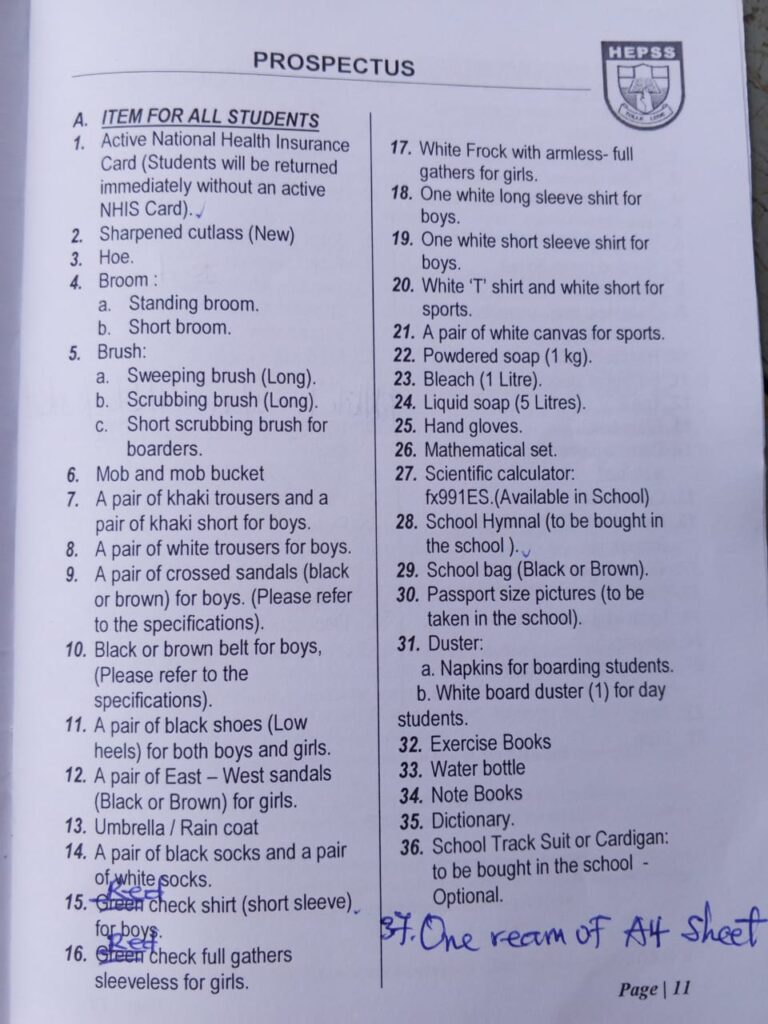Some parents seeking admission for their wards into Senior High Schools (SHSs) have raised concerns over what they describe as an “overloaded” and financially burdensome admission prospectus.
They said the long list of items, coupled with high levies, was putting undue pressure on struggling families, and appealed to the government and the Ghana Education Service (GES) to intervene.
At the Evangelical Presbyterian SHS (HEPSS) in Hohoe, a parent told the Ghana News Agency (GNA) that the Parents-Teacher Association (PTA) dues alone amounted to GH¢582.00, aside other charges and requirements such as exeat cards, mattresses, chop boxes, trunks, provisions, toiletries, and a ream of A4 sheets.
He argued that the financial demands contradicted the spirit of the Free SHS policy, which seeks to make secondary education accessible and affordable.

“Government says education is free, but when you look at the tall list of items and extra charges, it becomes very difficult for low-income families,” he said.
Parents in Kadjebi, Jasikan, and surrounding areas expressed similar frustrations, adding that some items were unnecessary or could be centrally provided at subsidised costs. Madam Akosua Boadiwaa, who secured admission for her daughter at OLA Girls’ SHS in Ho, said she had to resort to a loan scheme to meet the requirements.
A school administrator, however, explained that many of the items and fees were agreed upon by the PTA and management to support infrastructure, sanitation, and maintenance, which are not covered under Free SHS. He admitted, nonetheless, that GES and the Ministry of Education should consider streamlining prospectuses to reduce disparities and ensure fairness.
Education advocacy groups have also called for a national dialogue on the hidden costs associated with the policy, stressing that while tuition and feeding are covered, indirect costs remain a burden on families.
Introduced in 2017, the Free SHS policy covers tuition, textbooks, meals, and boarding for all public SHS students. Stakeholders say its effectiveness now depends on addressing implementation challenges, including equitable resource allocation and cost moderation.
Fresh students are scheduled to report on Saturday, October 18, 2025.

